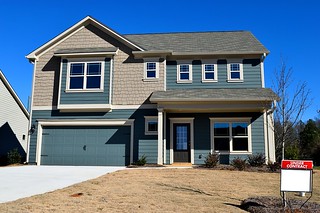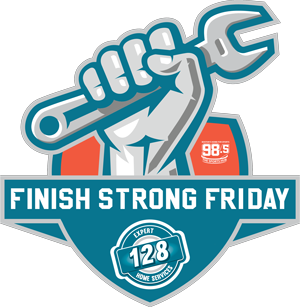
Adding a high velocity heating system in your home can offer some key benefits, including improved efficiency and climate-controlling features. Heating and cooling systems using high velocity can be an excellent upgrade for many homes in the Boston area, where temperature extremes are frequent. There’s much to know about a high velocity system before you decide if it’s the HVAC solution for your Massachusetts home.
At 128 Plumbing, our team can help you determine if a high-velocity HVAC system is best for you. If you are planning the installation of a new heating and cooling system, it’s the right time to speak to our technicians about a high velocity system.
What Is a High Velocity Heating System?
High velocity systems work much like traditional heating and cooling systems in that they pull in air, warm or cool the air in the system, and then push it throughout the home by way of vents. In most cases, a high velocity system isn’t significantly different from existing heating systems at this point.
Where a high-velocity heating and cooling system differs from a traditional HVAC system is in the circulation of air. The air moves from the heating compressor or heat pump and into a specific high-velocity air handler, which is necessary for these systems. In a high-velocity system, there is a lot more force pushing the air through the home than in a traditional HVAC system. High-velocity systems move heated or cooled air throughout the home at a much faster pace. In most Boston homes, it can take a long time for the heating and cooling system to bring a room up to temperature. With a high-velocity system, it takes much less time.
Another key difference with high velocity systems is that they do not require an extensive set of large ducts running in the home’s walls and ceilings. Instead, the high-velocity system uses a type of thin tubing. This tubing is about two inches in diameter overall, making it very easy to install compared to traditional heating system ductwork. It’s also very flexible, which means it can twist and turn around structures for a better fit, which is especially beneficial in some of the older Boston-area homes.
In a high-velocity system, the vents themselves are also very small. The high-velocity design requires about six vents in the average-size home. Traditional HVAC vents are about 6-inches tall and could be as much as 12-inches wide. A high-velocity vent is typically small and round, measuring just 5-inches in diameter and almost flush with the ground in the home.
What Are the Benefits of a High Velocity System Over Other Heating and Cooling Systems?
Installation of high velocity systems can be worthwhile in many Boston homes, especially when you consider the benefits of this heating system over other HVAC systems. Take a look at why high velocity systems are ideal when you need to upgrade with a new HVAC system.
High-velocity Systems Are More Efficient for Heat Production
A high-velocity system produces the same amount of heat as an existing heater but uses it more efficiently. The key reason for the installation of these models in your home is to improve the HVAC system’s efficiency. These high velocity systems heat rooms faster, so there is less need for more fuel, creating comfort faster while reducing energy consumption. Even larger homes in the Boston area can heat faster with a high-velocity HVAC system.
High-Velocity Systems Provide Zoning Control
With a high-velocity system, it’s possible to create zoned heating and cooling areas. That means property owners in Eastern Massachusetts can set rooms to different temperatures with the installation of this type of equipment. You may wish to reduce the heating of your basement, for example, and increase the heating of the living spaces. By having the basement set at a lower temperature, the furnace can focus on heating the other areas, reducing the overall cost of using your heating systems.
Replacement Installation Doesn’t Require Significant Changes
Another key benefit of installing a high-velocity HVAC system is that it can help make replacing a traditional heating unit less expensive. For those who live in older Boston homes, for example, adding new vents and ductwork is costly and highly involved. With a high-velocity HVAC system, this process is greatly reduced. The installation of high-velocity heating system vents is less invasive to the home, making it easier to modify the HVAC system and, in most cases, less expensive to upgrade the heating system. Since costs range widely due to the age of the home and condition of the ductwork, call our team at 128 Plumbing for estimates.
Adding a High Velocity System to New Construction Is Easier and More Cost-Effective
The investment in high-velocity systems makes sense for many new construction homes in Boston. It helps to reduce installation costs by not requiring extensive heating ductwork throughout the home, and it promotes greater heat efficiency.
Disadvantages of a High Velocity System in Some Boston-Area Homes
Some homes may not benefit as much from high-velocity systems. In some older homes, existing electrical lines and other obstacles can make installing this type of heating system a bit more difficult because installers are not tearing out wall space to position it. That may mean spending a bit more time on the installation of the heating system.
Newer high-velocity systems are very efficient, but if the traditional, existing heating systems are working, replacing them with a high-velocity system may offer only minor benefits. If your home is heating well right now and your heat system is working properly, it may be better to wait until you have a problem to replace existing systems with a new one.
Choosing the Right Heating Solution Is Important
Not all high velocity heating systems are the same. When you work with the team at 128 Plumbing, we can help you determine if now is the right time to replace your heating system and which manufacturer of high velocity heating systems is best for your situation. Your home’s size, furnace use, and whether you need to replace both the air conditioning and heating system are factors in this decision. Additionally, not all air handlers are the same; some are simply more efficient, less likely to need repair, and better suited for the climate in Boston.
Request a Consultation About Your Heating System in the Boston Area
Homeowners should reach out to our team at 128 Plumbing to learn more about this type of system and whether it is a good fit for your home.


